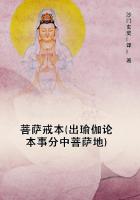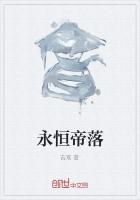and it was plain to us that I also must go to Strelsau. There, in the city, the drama must be played out. There was Rudolf, there Rischenheim, there in all likelihood Rupert of Hentzau, there now the queen. And of these Rupert alone, or perhaps Rischenheim also, knew that the king was dead, and how the issue of last night had shaped itself under the compelling hand of wayward fortune. The king lay in peace on his bed, his grave was dug;
Sapt and James held the secret with solemn faith and ready lives.
To Strelsau I must go to tell the queen that she was widowed, and to aim the stroke at young Rupert's heart.
At nine in the morning I started from the lodge. I was bound to ride to Hofbau and there wait for a train which would carry me to the capital. From Hofbau I could send a message, but the message must announce only my own coming, not the news I carried. To Sapt, thanks to the cipher, I could send word at any time, and he bade me ask Mr. Rassendyll whether he should come to our aid, or stay where he was.
"A day must decide the whole thing," he said. "We can't conceal the king's death long. For God's sake, Fritz, make an end of that young villain, and get the letter."
So, wasting no time in farewells, I set out. By ten o'clock I was at Hofbau, for I rode furiously. From there I sent to Bernenstein at the palace word of my coming. But there I was delayed. There was no train for an hour.
"I'll ride," I cried to myself, only to remember the next moment that, if I rode, I should come to my journey's end much later.
There was nothing for it but to wait, and it may be imagined in what mood I waited. Every minute seemed an hour, and I know not to this day how the hour wore itself away. I ate, I drank, I
smoked, I walked, sat, and stood. The stationmaster knew me, and thought I had gone mad, till I told him that I carried most important despatches from the king, and that the delay imperiled great interests. Then he became sympathetic; but what could he do? No special train was to be had at a roadside station: I must wait; and wait, somehow, and without blowing my brains out, I
did.
At last I was in the train; now indeed we moved, and I came nearer. An hour's run brought me in sight of the city. Then, to my unutterable wrath, we were stopped, and waited motionless twenty minutes or half an hour. At last we started again; had we not, I should have jumped out and run, for to sit longer would have driven me mad. Now we entered the station. With a great effort I calmed myself. I lolled back in my seat; when we stopped I sat there till a porter opened the door. In lazy leisureliness I bade him get me a cab, and followed him across the station. He held the door for me, and, giving him his douceur, I set my foot on the step.
"Tell him to drive to the palace," said I, "and be quick. I'm late already, thanks to this cursed train."
"The old mare'll soon take you there, sir," said the driver. I
jumped in. But at this moment I saw a man on the platform beckoning with his hand and hastening towards me. The cabman also saw him and waited. I dared not tell him to drive on, for I
feared to betray any undue haste, and it would have looked strange not to spare a moment to my wife's cousin, Anton von Strofzin. He came up, holding out his hand,delicately gloved in pearl-gray kid, for young Anton was a leader of the Strelsau dandies.
"Ah, my dear Fritz!" said he. "I am glad I hold no appointment at court. How dreadfully active you all are! I thought you were settled at Zenda for a month?"
"The queen changed her mind suddenly," said I, smiling. "Ladies do, as you know well, you who know all about them."
My compliment, or insinuation, produced a pleased smile and a gallant twirling of his moustache.
"Well, I thought you'd be here soon," he said, "but I didn't know that the queen had come."
"You didn't? Then why did you look for me?"
He opened his eyes a little in languid, elegant surprise. "Oh, I
supposed you'd be on duty, or something, and have to come. Aren't you in attendance?"
"On the queen? No, not just now."
"But on the king?"
"Why, yes," said I, and I leaned forward. "At least I'm engaged now on the king's business."
"Precisely," said he. "So I thought you'd come, as soon as I
heard that the king was here."
It may be that I ought to have preserved my composure. But I am not Sapt nor Rudolf Rassendyll.
"The king here?" I gasped, clutching him by the arm.
"Of course. You didn't know? Yes, he's in town."
But I heeded him no more. For a moment I could not speak, then I
cried to the cabman:
"To the palace. And drive like the devil!"
We shot away, leaving Anton open-mouthed in wonder. For me, I
sank back on the cushions, fairly aghast. The king lay dead in the hunting-lodge, but the king was in his capital!
Of course, the truth soon flashed through my mind, but it brought no comfort. Rudolf Rassendyll was in Strelsau. He had been seen by somebody and taken for the king. But comfort? What comfort was there, now that the king was dead and could never come to the rescue of his counterfeit?
In fact, the truth was worse than I conceived. Had I known it all, I might well have yielded to despair. For not by the chance, uncertain sight of a passer-by, not by mere rumor which might have been sturdily denied, not by the evidence of one only or of two, was the king's presence in the city known. That day, by the witness of a crowd of people, by his own claim and his own voice, ay, and by the assent of the queen herself, Mr. Rassendyll was taken to be the king in Strelsau, while neither he nor Queen Flavia knew that the king was dead. I must now relate the strange and perverse succession of events which forced them to employ a resource so dangerous and face a peril so immense. Yet, great and perilous as they knew the risk to be even when they dared it, in the light of what they did not know it was more fearful and more fatal still.














